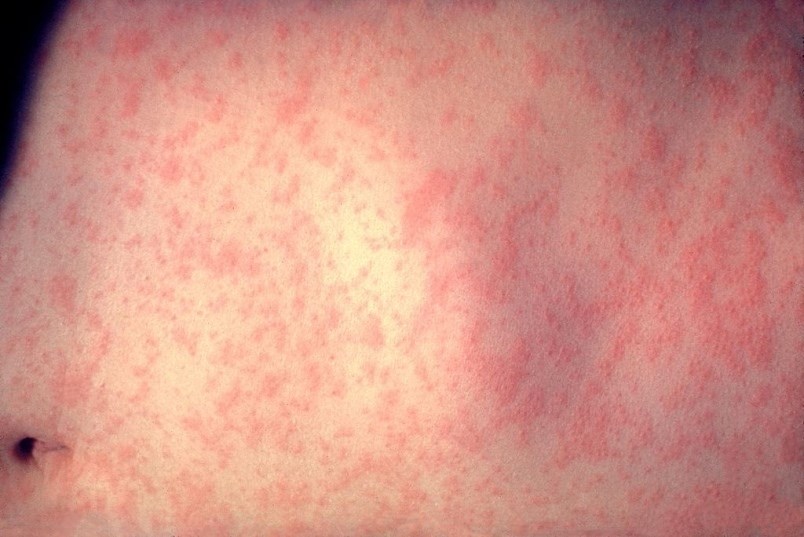A total of eight measles infections have been identified in Vancouver this week, bringing the total number of cases of the virus in the city to nine.
Vancouver Coastal Health was warning the public late Friday that one of the infected individuals visited the emergency room at B.C. Children’s Hospital while they were infectious.
The health authority is warning anyone who visited the emergency room during certain hours over several days could have been exposed to the virus. Anyone who develops measles symptoms should contact their health care provider.
The dates and times are:
- Jan. 21 between 10 a.m. and 6:10 p.m.
- Jan. 23 between 4:45 p.m. and 11:10 p.m.
- Jan. 24 between 8:13 a.m. and 11:40 a.m.
- Feb. 1 between 2:05 p.m. and 6:55 p.m.
“Since a number of cases have now been confirmed, there is an increased chance of unidentified exposures in the community,” VCH said in a statement. “Those who are unimmunized or incompletely immunized are at highest risk.”
The first case was reported by Vancouver Coastal Health on Feb. 9. In that case, the infected person picked up the virus while traveling outside North America, said spokesperson Tiffany Akins.
She added that the local cases are not linked to the recent measles outbreaks in Washington state and Europe.
At least three of the cases reported this week have been linked to three local French-language schools — elementary schools École Anna-Hébert and École Rose-Des-Vents, and high school École Jules-Verne. Akins could not comment on the ages of the infected individuals, or whether or not they had been vaccinated.
“Many families have children in two of the schools (high school and elementary),” Akins said in an email, adding that the schools share a bus company.
“This is a developing situation and for VCH as we are collecting information from people including parents and kids from the affected schools,” she said.
The measles virus is highly infectious and can spread through the air when an infected person coughs or sneezes and you do not have to be in close contact with an infected individual to catch the virus. According to VCH, “You could spend just a few minutes in the same room as someone and get it, though, the closer the contact, the higher the risk.”
The virus can survive in a closed area, like a bathroom, for up to two hours after an infected person was there. It can also be spread through sharing food, drinks or cigarettes, and kissing. Someone infected with measles is contagious for four days before they even start showing symptoms and for four days after the onset of the rash.
Symptoms include: fever, red eyes, which may be sensitive to light, cough, a runny nose and rash.
Complications from the virus include pneumonia, inflammation of the brain (encephalitis), seizures, deafness, brain damage and death.
If you think you might have the measles, or have a fever and rash, Vancouver Coastal Health recommends isolating yourself by staying home and seeing a doctor. But call ahead so the doctor’s office can take precautions to protect other patients.
The measles vaccine is 99 per cent effective in preventing the virus when two doses have been administered. Children born in B.C. in or after 1994 routinely get two doses of the measles, mumps and rubella (MMR) vaccine — one at 12 months old and a second dose before starting kindergarten.
Vancouver Coastal Health warns that anyone born after 1970 and before 1994, or grew up outside of B.C., may have received only one dose of the vaccine.
The vaccine is available free of charge at public health units.
@JessicaEKerr
jkerr@vancourier.com



